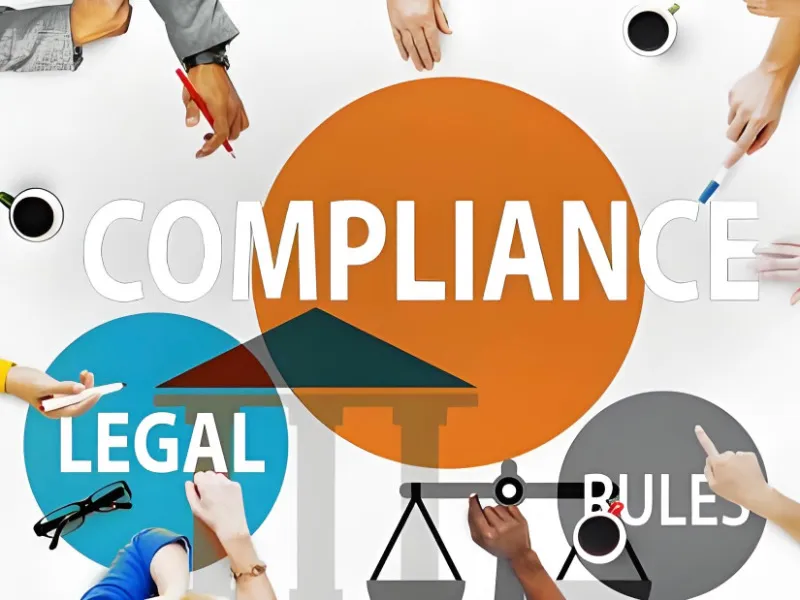- IT compliance refers to the process of adhering to established guidelines and standards governing the use and management of information technology.
- Each of these regulations mandates specific controls and procedures to safeguard data and ensure the reliability of financial reporting.
In the currently digital era, where data breaches and cyber threats are prevalent, IT compliance has emerged as a critical component for organisations worldwide. IT compliance is a fundamental aspect of modern business operations, ensuring that organisations adhere to legal, regulatory, and industry standards for data protection and IT security. By prioritising compliance, businesses can safeguard sensitive information, mitigate risks, and build trust with their stakeholders. As the digital landscape continues to evolve, the importance of IT compliance will only grow, making it an essential component of any organisation’s strategic framework.
Understanding IT compliance
IT compliance refers to the process of adhering to established guidelines and standards governing the use and management of information technology. These standards can be imposed by governmental bodies, industry organisations, or internal corporate policies. The primary goal is to protect data, maintain the security of IT systems, and ensure the privacy and integrity of information.
Compliance requirements vary widely across industries. For instance, healthcare organisations must comply with the Health Insurance Portability and Accountability Act (HIPAA), while financial institutions are subject to the Sarbanes-Oxley Act (SOX) and the Payment Card Industry Data Security Standard (PCI DSS). Each of these regulations mandates specific controls and procedures to safeguard data and ensure the reliability of financial reporting.
Also read: Microsoft Defender’s security breach enables spread of dangerous malware
Also read: Software and AI demand drive IBM’s growth despite consulting drop
Key Components of IT Compliance
One of the core elements of IT compliance is data protection. This involves implementing measures to secure sensitive information from unauthorized access, breaches, and leaks. Organizations must establish robust encryption protocols, access controls, and data backup solutions to protect personal and financial data.
Effective risk management is crucial for IT compliance. Organizations must conduct regular risk assessments to identify potential vulnerabilities and threats to their IT systems. By understanding these risks, companies can implement appropriate mitigation strategies and ensure continuous monitoring to address new threats as they arise.
Developing comprehensive IT policies and procedures is essential for compliance. These policies should outline the acceptable use of IT resources, data handling practices, and incident response protocols. Clear documentation ensures that employees understand their roles and responsibilities in maintaining compliance.
Regular auditing and monitoring are critical for maintaining IT compliance. Organizations must conduct internal and external audits to verify adherence to compliance standards. Continuous monitoring of IT systems helps detect any deviations or potential breaches, allowing for timely corrective actions.
Also read: Microsoft Defender’s security breach enables spread of dangerous malware
Also read: Core of disaster recovery: Business continuity assurance
Why IT Compliance Matters
Non-compliance with IT regulations can result in severe legal and financial consequences. Organizations may face hefty fines, legal penalties, and reputational damage. Adhering to compliance standards ensures that businesses meet their legal obligations and avoid costly litigation.
In an age where data breaches are increasingly common, IT compliance is vital for safeguarding sensitive information. Compliance standards mandate stringent security measures, reducing the risk of data breaches and ensuring the privacy of customer and employee data.
Maintaining IT compliance fosters trust among customers, partners, and stakeholders. Demonstrating a commitment to data protection and regulatory adherence enhances an organization’s reputation and builds confidence in its ability to safeguard sensitive information.
IT compliance promotes the implementation of best practices and standardized procedures, leading to improved operational efficiency. By establishing clear guidelines and protocols, organizations can streamline their IT processes, reduce risks, and enhance overall productivity.
Recent industry examples
The importance of IT compliance is underscored by several high-profile incidents and regulatory actions. For instance, the General Data Protection Regulation (GDPR) enforced by the European Union has significantly impacted how organisations handle personal data. Companies failing to comply with GDPR have faced substantial fines, highlighting the need for robust data protection measures.
Another example is the Equifax data breach in 2017, which exposed the personal information of over 147 million individuals. The breach resulted in significant legal and financial repercussions for Equifax, emphasising the critical importance of maintaining IT compliance to prevent such incidents.

